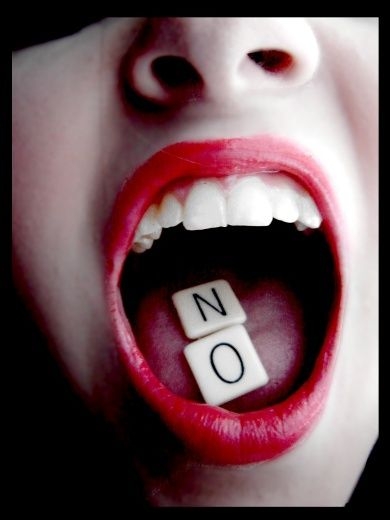The Power of Saying, "No"

"No!" is the hallmark of the sovereign man.
We have the ability to make rational decisions. The sad fact is that many people do not engage in the rational exercise of critical thinking. For those people, decisions are always significant emotional moments.
The art of making the right decision rests in the ability to balance intuition, emotion, and rational thought.
Nietzsche teaches us in "On the Genealogy of Morals" that the paradoxical task nature set about in breeding man was breeding an animal with the right to make promises. The long story of how responsibility originated presupposes that nature embraces the idea that man is to a certain degree uniform—and consequently calculable. Nietzsche rails that the morality of mores and the social straitjacket makes man calculable. I do not agree in the context of the modern age. That today’s man is lazy and somewhat stupid makes him more calculable.
Those who allow their emotions to rule their decision-making process make themselves slaves to the influence of other people. Those who make only emotional decisions are slaves to the fear of what others may think of them. Their hearts bleed, and they lack the ability to do what is truly responsible and right for others. You can observe these people and calculate what it takes to motivate them. Use their fear of not being accepted, their fear that their supposed friends will shun them for not making the right choice, and you can herd these people.
Those who make decisions based solely on intuition rely on a compass that detects only pain and pleasure. Intuitive decision-making is nothing more than reaction, nothing more than making a decision to eat when one is hungry. Those who make only intuitive decisions will always avoid pain and chase pleasure. Show them the unpleasant and uncomfortable and they will take the easy way.
Those who make only rational or logical decisions are often blindsided by the chaos of the real world. The world is not always a rational place. The emotions of other people create unpredictable chaos that is ever-resistant to rational and logical constructs.
In each of us lives a decision-making troika, the head, the heart, and the gut. Logic, emotion, and intuition. When all three members of the troika are in agreement on a decision, harmony rules and the decision is made with certainty. If at any point, one of the members of the troika falls out of agreement, there is discord, angst, frustration, and confusion. When someone cannot make a decision, often one of the members of their troika is in disagreement with the others.
Understanding that your decisions must incorporate all three members, making the willful decision to only accept decisions when all three are in agreement, is one of the major acts of sovereignty. When you are sovereign, you are able to make decisions on your own, you are able to filter and diffuse the influence of others. A key act of sovereignty as a man is the ability to make one's own decisions.
Liberation from custom and the influence of others—taking the role of a critical thinker, a man who has his own independent will and the right to make promises—is perhaps the most important kind of liberation. The man that makes promises like a sovereign—reluctantly, rarely, and slowly—and whose trust is a mark of distinction; when that man makes a promise, his word is inviolable.
A hallmark of the sovereign man is the ability to say, "No" in the face of heavy influence. When the sovereign man says, "No," he is clearly making the statement, "I am able to make my own decisions."
The word no is perhaps the most powerful tool at the sovereign man's disposal.


